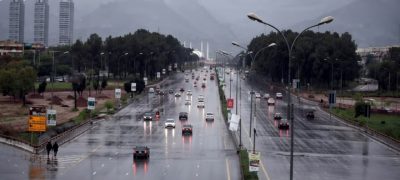In a recent interview, Mian Muhammad Mansha, one of the leading businessmen in Pakistan, emphasized the need for the federal government to reduce its expenditures. Mansha stated that while there is constant talk about expanding the tax net, little attention is given to addressing the issue of excessive spending. He highlighted that despite this emphasis on widening the tax net, only 1% of the population in the country are tax filers.
Read More: The business community opposes increasing the burden on the public and industry.
Referring to the recent approval of a $3 billion loan program from the International Monetary Fund (IMF), Mansha acknowledged that the IMF package would help bring discipline to the system. However, he raised the important question of what steps the government should take next.
The IMF’s staff-level agreement, reached on June 29, offers much-needed respite to Pakistan, which is grappling with a severe balance of payments crisis and dwindling foreign exchange reserves. The agreement, subject to approval by the IMF board, comes at a crucial time as the previous agreement with the IMF expired on June 30.
Mansha suggested that in order to reduce the interest rate, the government should first privatize state-owned entities. He also highlighted overstaffing in government departments as a major issue for Pakistan’s economy. He further mentioned the losses incurred by power distribution companies (DISCOs) due to non-recovery, pointing out the potential for improvement in areas such as Hyderabad, Sukkur, Quetta, and Khyber Pakhtunkhwa.
Commenting on the tax system, Mansha revealed that he alone paid Rs9.5 billion in taxes for one of the banks he owns. He expressed concern over the government’s imposition of various taxes, including a super tax on banks, and stressed the importance of strengthening the country’s banks to alleviate stress on the economy.
As Pakistan grapples with economic challenges, Mansha’s call for curtailing expenditures and implementing necessary reforms serves as a reminder of the measures needed to stabilize the economy and promote sustainable growth.









